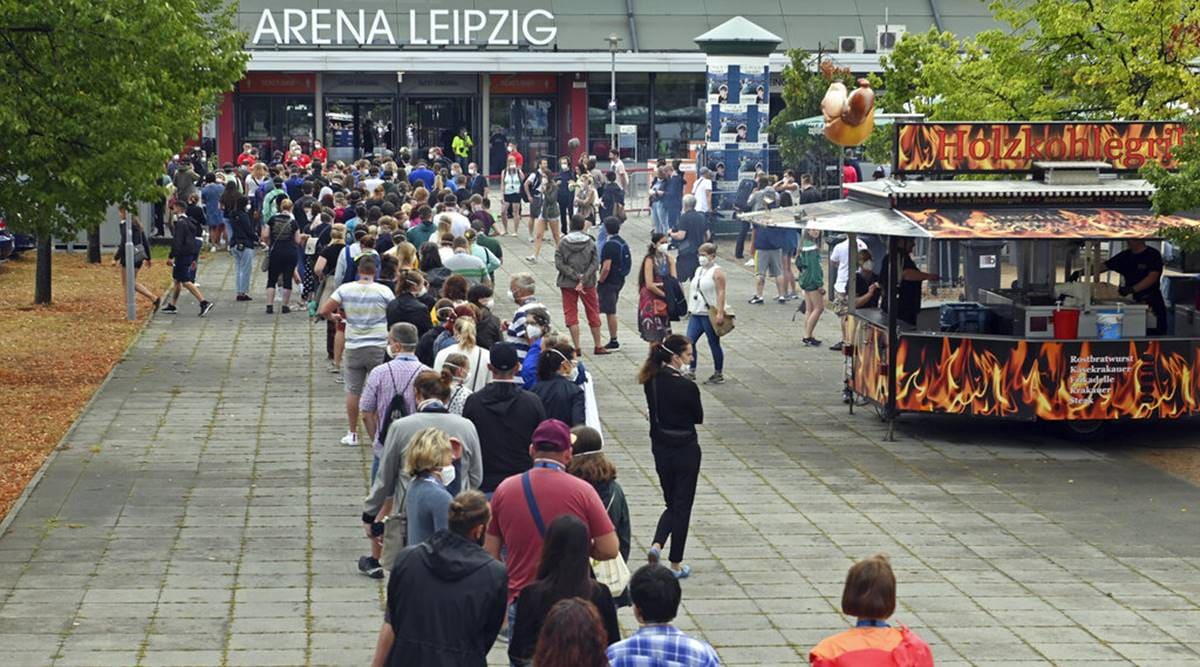 Test persons of a large-scale experiment of the University Medicine Halle/Saale are standing at the entrance in front of the Arena Leipzig. (AP)
Test persons of a large-scale experiment of the University Medicine Halle/Saale are standing at the entrance in front of the Arena Leipzig. (AP)A team of researchers in Germany Saturday staged an elaborate experimental indoor concert — complete with 1,500 attendees and a musical act — to study how to limit the spread of the deadly Covid-19 virus at big events. The study comes just as bars and restaurants begin reopening in Europe amidst the ongoing Covid-19 pandemic.
At the concert, organised by researchers from the German University of Halle, each volunteer was equipped with a face mask, a contact tracer, and a fluorescent hand gel, CNN reported. While they enjoyed a performance by German singer-songwriter Tim Bendzko, the researchers were collecting data on how the virus could potentially spread among the volunteers— all of whom had tested negative for Covid-19.
The aim of the experiment was to gain insights into how events can be safely and effectively conducted during the pandemic, so that authorities can be better prepared, Professor Michael Gekle, the dean of the university’s medical faculty, told CNN.

“We cannot afford another lockdown,” he said. “We have to gather the data now in order to be able to make valid predictions.”
The researchers staged three different scenarios — the first resembled a concert before the pandemic, without any social distancing measures; the second simulated a concert in the midst of the pandemic, with strict measures and hygiene standards to prevent the spread of the virus; and the third included a smaller audience.
The small contact tracking devices were used to see how many people each volunteer came in close proximity with, and also determined the distance between participants. Meanwhile, traces left by the fluorescent hand gel helped scientists ascertain which surfaces were touched the most.
The researchers will now gather the data and apply a mathematical model to arrive at conclusions, keeping in mind the various hygiene interventions adopted for the study. According to the CNN report, the results of the study will be ready by the end of the year.
“There is no zero risk if you want to have life. We want to give the politicians a tool in order to decide rationally whether to allow such an event or not,” Gekle said. “That means they have to have the tool to predict how many additional infected people such an event will produce.”
Since the pandemic began, otherwise thriving venues were forced to down their shutters. In response, many organisers and planners began experimenting with virtual concerts and events, which were streamed on various social media platforms and websites.